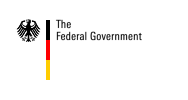The official name is the French Republic (République Française). The Constitution of the Fifth Republic defines France as an indivisible, secular state. The official language is French. France is 547,026 sq. km in area and has a population of around 61.1 million, of whom 4.5 million are foreigners.
There are four overseas départements, whose population is not included in the figure above, as well as two overseas territorial collectivities and four overseas territories with limited powers of self-government.
Of the population, 82% are Roman Catholic. There are 4 to 5 million Muslims, some 0.8 million Protestants, and 0.7 million Jews.
The French Republic has been a member of the United Nations since 1945, of the European Union since 1951, and of NATO since 1949 (without military integration). It is also a member of the World Bank (1945), the IMF (1945), the OECD (1961), UNESCO (1945), the UN Disarmament Conference and the OSCE (1973).
G8
In 1975 the then President of the French Republic, Giscard d'Estaing, invited the Heads of State and Government of Germany, Japan, the United Kingdom, the USA and Italy to an informal meeting at the Château de Rambouillet near Paris.
After the success of this meeting, the six countries (later eight) held a summit every year. Since then, France has held the presidency a further four times: 1982 (Versailles), 1989 (Paris), 1996 (Lyon) and 2003 (Evian). The next summit to be held in France will be in 2011.
>> Evian, Chair's summary
Top
Political system
The French Republic is a parliamentary presidential democracy with a bicameral legislature (National Assembly and Senate). The Head of State is the President, who is also protector of the Constitution. The President and the National Assembly are both directly elected.
In 2002 the Constitution was amended to reduce the presidential term from seven to five years. The President appoints the Prime Minister, who leads the government. The President also presides over meetings of the Council of Ministers, has the power to dissolve the National Assembly, and on the proposal of the government or parliament may submit legislation to referendum. He also has a number of other powers.
Since the 1980s France has undergone an extensive decentralisation, which in 2003 was enshrined in a constitutional amendment. Legislation has been passed to strengthen the regions and increase direct democracy.
On May 16, 2007 Nicolas Sarkozy took office as President of the French Republic.
Top
Economy
France has a social market economy. The government's main objective is to reduce unemployment. The 35-hour week has been established by law in France.
Facts:
- Gross Domestic Product: 1,689.4 bn EUR (2005)
- GDP per capita: 28,136 EUR (2005)
- Growth slowed in 2005 as compared to 2004, falling from 2.5% to 1.4%
- Average unemployment rate in 2005: 9.7% youth unemployment being 20.6%
- Budget deficit as percentage of GDP (2005): -2.9% (Maastricht criterion: 3%)
- Public debt as percentage of GDP (2005): 65.8%
- Inflation rate (2005): 1.7%
Top
Foreign trade
In 2005 the French trade deficit was 26.4 bn EUR.
Annual exports were 355 bn EUR.
Annual imports were 382 bn EUR.
